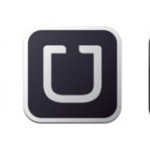 Chicago Sun Times writer Fran Spielman writes that the Ride Sharing Companies of Chicago and the City Council have come to a compromise that would be further evaluated in half a year. This comes on the tail of a very long battle over regulation and how Ride Sharing Companies have serviced disabled people. The original plan devised by Anthony Beale was a highly regulatory plan that would have required Ride Sharing Companies to make their employees take day long classes, along with using FBI finger printing checks to make sure their employees are thoroughly vetted. Spielman writes, “Transportation Committee Chairman Anthony Beale (9th), who pushed through his more rigid licensing ordinance last week, on Monday agreed to a compromise that would license all Uber and Lyft drivers after a daylong course that could be completed online and background checks performed by the companies with information shared with the city. But there would be no fingerprinting for at least six months.”
Chicago Sun Times writer Fran Spielman writes that the Ride Sharing Companies of Chicago and the City Council have come to a compromise that would be further evaluated in half a year. This comes on the tail of a very long battle over regulation and how Ride Sharing Companies have serviced disabled people. The original plan devised by Anthony Beale was a highly regulatory plan that would have required Ride Sharing Companies to make their employees take day long classes, along with using FBI finger printing checks to make sure their employees are thoroughly vetted. Spielman writes, “Transportation Committee Chairman Anthony Beale (9th), who pushed through his more rigid licensing ordinance last week, on Monday agreed to a compromise that would license all Uber and Lyft drivers after a daylong course that could be completed online and background checks performed by the companies with information shared with the city. But there would be no fingerprinting for at least six months.”
During this six month period there will be research on the merits of fingerprinting checks being used on Uber/Lyft and according to Beale if the research shows that its fair they’ll have no problem implementing this regulation. Spielman notes though that this is a reprieve for the Ride Sharing Companies and especially embattled Chicago city Mayor Rahm Emmanuel whose brother serves on the company. Rahm has been against the strict licensing plan originally proposed by Beale as he reasons it would limit ride choices for the Citizens of Chicago. Uber and Lyft have issued threats in the past about the possibility of them abandoning the market if these regulations went through in full. Rahm was pleased about the compromise apparently as Spielman shows, “On Monday, the mayor hailed what he called an “honest compromise to move forward” on a contentious issue. He called Chicago the “first city to do licensing” and “get ride-share to agree to that.
“Alderman Beale and I worked through some issues today. … We’re gonna have a six- to nine-month study of fingerprinting citywide about a whole host of things,” the mayor said.”
Finger printing isn’t the only issue at stake here, a big part of the licensing ordinance Beale originally wanted, was forcing Uber and Lyft drivers to service disabled citizens equally and fairly. Under the plan Ride Sharing Companies would have been required for at least 5 % of their total fleet to be accessible to disabled customers. Now the companies will have six months to devise a more wheel-chair accessible plan and six months to implement it, otherwise they’ll face a crushing fine. Despite Beale’s claim that the disabled community is fine with the compromise, Spielman details otherwise.
“We still want 5 percent of vehicles to be accessible in the [Uber and Lyft] fleet,” Access Living spokesman Gary Arnold said. The ride-share companies have had two years. We’ve seen nothing from that. . . . A report showed in all the time they’ve been here through August 2015, they had only issued 14 rides to people who use wheelchairs.”
So this is obviously a complicated battle with important issues at stake here. Plenty of high standing people and groups with a lot to lose are in the thick of this and so their special interests need to be at least noted. Cab companies have naturally donated money to Beale’s cause to “level” the playing field between them and their ride sharing rivals and Rahm’s brother of course works for Uber. Further complicating things is reasoning(logical reasoning) by the Ride sharing Companies that FBI fingerprinting checks can be discriminatory and punish minorities who have had problems with the legal system on more occasions. non violent pointless run-ins with the police remain on the record and could ruin certain drivers chances of employment.
You can follow Spielman’s earlier coverage of the conflict here.

